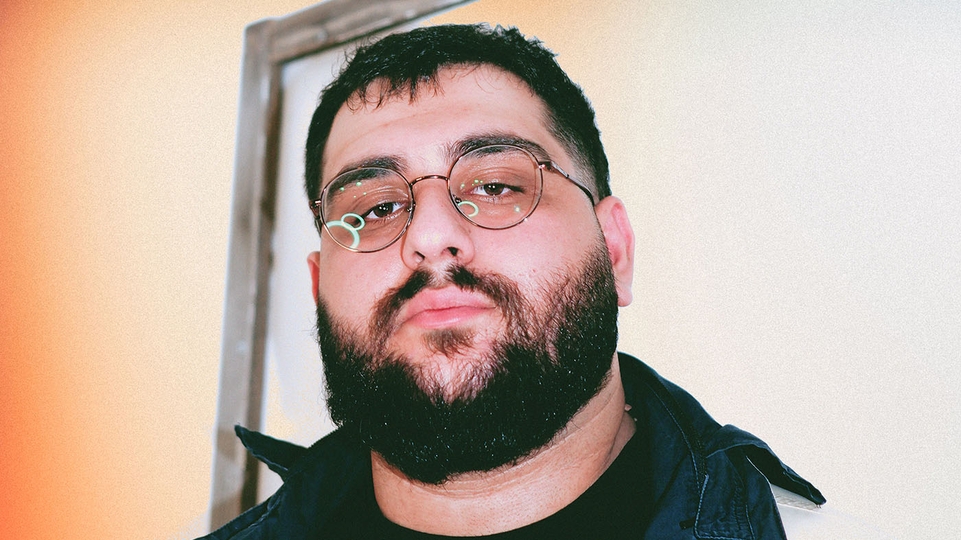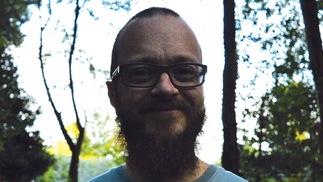Get To Know: Toumba

Get acquainted with Toumba, the Jordanian producer merging cutting-edge machine drums and heavy bass with the melodies and percussive rhythms of the Levant
From the kuduro of Angola to the cumbia of Colombia, the singeli of Tanzania to the mahraganat of Egypt, rhythms from across the world have become key ingredients in underground dance music. Fuelling the sets of forward-thinking DJs and merging with other styles in the productions of upcoming artists to create hypermodern composites, these global beats have made dancefloors a more exciting place to be. That’s something that Jordanian producer Toumba (real name: Yazan Zyadat) acutely understands. Based in the capital Amman, his creations merge cutting-edge machine drums and heavy electronic bass with the melodies and percussive rhythms of the Levant (the region that encompasses Jordan, Syria, Lebanon, Palestine and Israel).
On his ‘Rosefinch’ EP (named for Jordan’s national bird) for London label Hypnic Jerks, ‘Multipack Of Limes’ has beats that hint at UK funky, though its evocative synth leads are suggestive of traditional Jordanian music. On his new ‘Petals’ EP for Hessle Audio, ‘Istibtan’ has the broken kicks, claps and deadly deep subs you might associate with the label — however, the addition of synth lines inspired by Jordanian wedding songs, and intricate hand percussion, make it feel brand new.
“Making music or any art in general is an extension of myself,” Toumba says. “I’ve lived all my life here, that is what I’m exposed to, so it wouldn’t make sense to me to not incorporate that into my work.”
The title track of the EP has a staggering, heavily swung beat that apparently owes its origin to the traditional music of South Jordan. What’s striking is how well these club rhythms and locally derived sounds combine. “When you hear the actual rhythms stripped back from traditional folklore music here, or even popular music that’s round this area, it’s very similar (though obviously different) to styles like dancehall and hip-hop,” Toumba adds. “I think it’s because geographically where we are was a very significant trade route, so it’s an amalgamation of a lot of different stuff. Some of UK club music obviously originated from dancehall and reggae, so it’s all kind of connected, in a way.”
Toumba got into dance music when he was studying at Loughborough University in the UK, but it was hearing SHERELLE play a particular track that convinced him he could make his own beats. “She played TSVI’s ’Hossam’, and when I first heard it, it was like two worlds colliding. That’s why I got into production, because I thought, ‘I can make that’.”
Today an active participant in Amman’s electronic underground, he contributes to the running of community project and club space MNFA in the city, where producers, DJs and creatives meet to play music and exchange ideas. “My friend found this carpark garage space at a hotel that wasn’t being used, it was just a dump for leftover construction materials. He was like, ‘I want to use that’, then he built it up, and used it as a club,” Toumba says. “It’s a very community effort — we run the bars, we run the door, we do the decoration.”
The city’s scene, Toumba reckons, is small but tight-knit, and because of its diminutive size, there’s no compulsion to compete or conform, so artists can create with freedom. “It gives you the space to do something you really like, because there’s no social pressure,” he says. “There’s nothing that works or doesn’t work — we’re going to establish that, you know? But it’s hard to incubate these talents, because of the lack of infrastructure.”
For the time being, Toumba is working on a live show, and is also preparing his next release, an EP that will emerge on TSVI and Wallwork’s Nervous Horizon label. He’s excited by the possibilities of global rhythms colliding and merging, and creating something new in the process.
“That’s the beauty of it, that’s how we move forward, because if we stuck to just what we know and made the same things over and over, we’re hurting ourselves and boring our audience and our own creativity. So it’s good to be inspired, but at the same time respect the origins of styles of music.”






